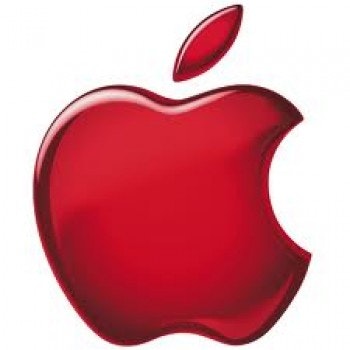There is a time and a place for options trading. For investors looking for a little bit more oomph to their portfolios, options inherently offer greater risk and return propositions — for better or for worse. One of the challenges with trading options beyond the leveraged profit and loss scenarios is that standard contracts represent round lots of 100 shares.
When considering high-priced stocks, that can be a little too much oomph in some cases. For example, Apple Inc. (NASDAQ:AAPL) trades in the ballpark of $430 right now, but shares were as high as over $700 just six months ago. Search giant Google Inc (NASDAQ:GOOG) has taken Apple’s place as the current tech stock darling of Wall Street, since Big G continues to tap fresh all-time highs of upwards of $840. Meanwhile, e-tail titan Amazon.com (NASDAQ:AMZN) is also just a stone’s throw away from its own all-time highs near $285. A derivative that represents 100 shares of any of those stocks can rack up quite the bill.

Those three stocks and two ETFs are among the most popular trading vehicles in the market today.
What it means for exchanges and brokers
The new mini-options are a positive for numerous financial services companies, including CBOE and brokerage firms, as both benefit from increased trading activity. The smaller contract size is more approachable, so options trading will inevitably increase. Brokerage options commissions typically carry a per-contract fee in addition to a base rate, which means the higher quantity of contracts trading directly translates into additional revenue.
Here are the online option commission schedules for some of the major brokers.
| Brokerage | Base Rate | Additional Fee-Per Contract |
|---|---|---|
| Fidelity | $7.95 | $0.75 per contract |
| Charles Schwab (NYSE:SCHW) | $8.95 | $0.75 per contract |
| E*TRADE | $7.99 to $9.99* | $0.75 per contract |
| TD AMERITRADE (NYSE:AMTD) | $9.99 | $0.75 per contract |
Source: Brokerage web sites. *Depending on trading activity.
The CBOE saw total options volume decline from 1.2 billion in 2011 to 1.11 billion in 2012, so any move that can increase that figure will be welcome there. Within the total, equities contracts have declined significantly in the wake of the financial crisis. Equities contract volume topped out at 634.7 million in 2009, but was just 494.3 million in 2012.
What it means for you
Investors also stand to benefit in the form of increased flexibility. Not only will investors soon be able to purchase contracts that don’t break the bank, but the mini-options will also provide new choices with hedging risk.
Covered calls are probably the most commonly used form of hedging for a long stock position, where an investor owns shares but sells a call against those shares. If shares are above the strike upon expiration, the investor is obligated to sell those shares at that strike, but if shares are below the strike price, then the contract expires worthless and the investor keeps the premium initially received. The relatively conservative strategy is a reliable way for investors to generate income on stocks that don’t pay dividends.
With round lots of Apple, Google Inc (NASDAQ:GOOG), and Amazon.com, Inc. (NASDAQ:AMZN) costing $43,000, $84,000, and $28,500, respectively, based on the prices above, those popular stocks have always proven prohibitively expensive many investors seeking a covered call position. With the new contracts, investors can sell a call contract that covers $4,300, $8,400, and $2,850 worth of stock instead, respectively, or increments thereof. That’s much more approachable.
These new mini-options are a win for everyone.
There is a debate raging as to whether Apple remains a buy. The Motley Fool’s senior technology analyst and managing bureau chief, Eric Bleeker, is prepared to fill you in on both reasons to buy and reasons to sell Apple Inc. (NASDAQ:AAPL), and what opportunities are left for the company (and your portfolio) going forward. To get instant access to his latest thinking on Apple Inc. (NASDAQ:AAPL), simply click here now.
The article Even More Options for Apple, Amazon, and Google Investors originally appeared on Fool.com and is written by Evan Niu.
Fool contributor Evan Niu, CFA, owns shares of Apple. The Motley Fool recommends Amazon.com, Apple, Google, and TD AMERITRADE. The Motley Fool owns shares of Amazon.com, Apple, and Google.
Copyright © 1995 – 2013 The Motley Fool, LLC. All rights reserved. The Motley Fool has a disclosure policy.




